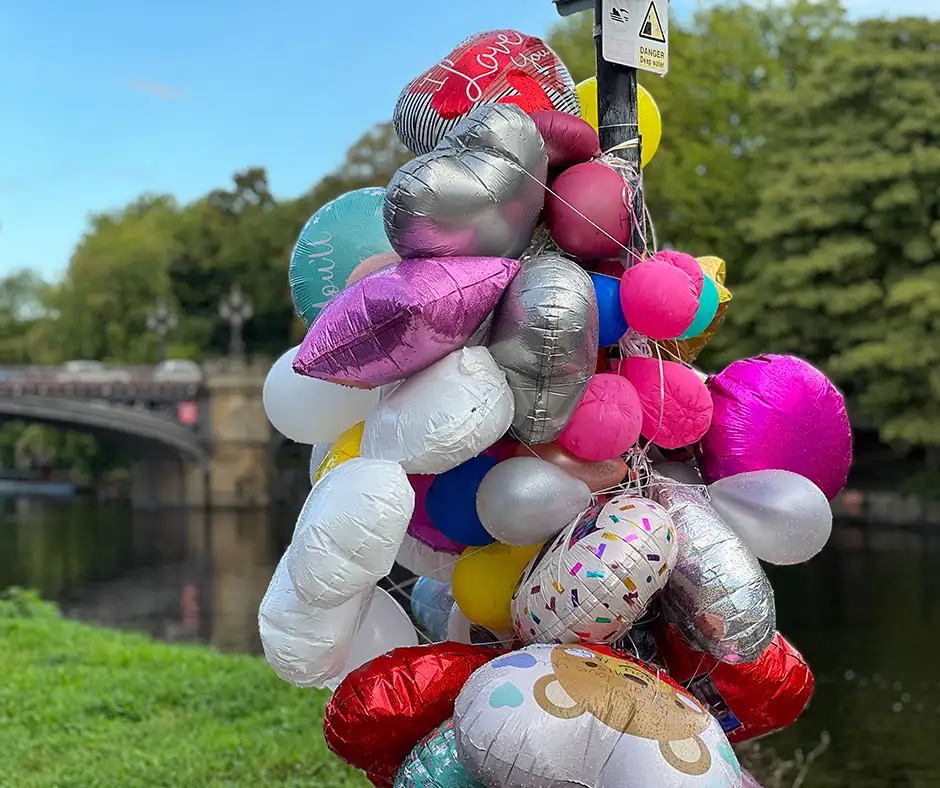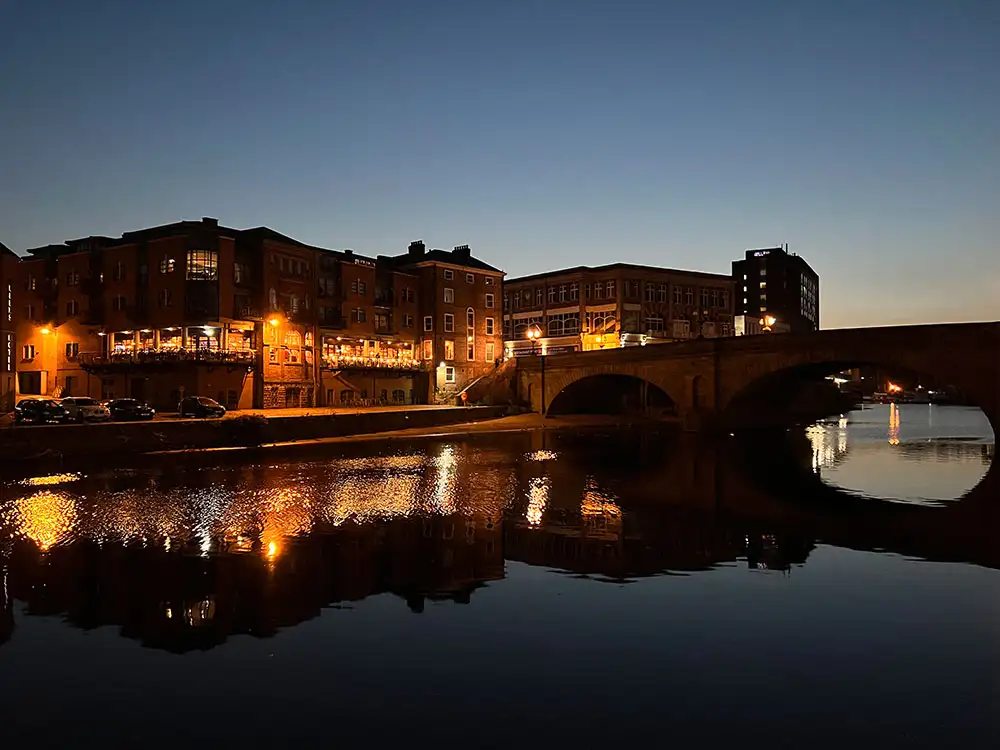The family of Leah Bedford say they are still searching for answers one year after her death.
Leah, from Acomb, went missing on 20 September last year. She was caught on CCTV at the edge of the river on Lendal Bridge the same day.
A police underwater unit found her body near Terry Avenue nine days later.
Her death devastated her family, and left her father Paul bereft. Together with Leah’s many friends, they held a vigil in her memory at the Gateway Church in Acomb yesterday (Saturday).
They gathered to light candles, leave messages in a memory box and remember the “young, bubbly, strong, and very well loved” girl they had lost.
Her aunt Jayne Reynolds said the anniversary was intensely poignant.
“It’s horrendous because we’re still waiting for the inquest. We’re still waiting for the police to stop dragging their feet with regards to their report,” she told YorkMix.
Her family say there are many unanswered questions about what happened to Leah. An official report says that the sighting near Lendal Bridge was not actually her last known movement.
“According to the report that we have, it says that she was seen walking away with somebody else,” Jayne said.
“We don’t know who this other person was. We don’t know if it’s male or female. We don’t know if they were ever interviewed.
“We were never told about this. And it says in the report that her friends said, when she left them, she was literally on her way home to Paul.
“She had no intentions of taking her own life. She had no intentions of entering that water. She had every intention of coming home to work, to her family.”
A year on, what does she think happened to Leah? “I can’t speculate on what I think happened. But what I know, what we know of Leah, is she would not have gone into that water on her own. Definitely not.
“There is no way – she idolised her dad, she idolised her family. Whether she was having difficulties or not, she always came back to family or her friends.”
‘We should have been involved’

The family feel angry that social services didn’t share more information with them about Leah’s mental health.
Jayne said there was “a lack of communication, of notes being put on the system. They kept saying that because she was 16, she was able to make her own choices.”
The health and caring professions use the Gillick competence to test whether young people under the age of 18 can consent to their treatment without their parents’ permission or knowledge.
“My argument is, if a child at 16 is under the influence of alcohol, drugs, or both, or their mental health state is really bad, how on earth can social services say that they are capable of making up their own mind, their own choices, without a family member being present?
“Leah’s dad and family should have been involved in any decision making regarding Leah. This may have helped her.
“Things like that that need to change.”
City of York Council said they couldn’t comment on Leah’s case as the official investigations were ongoing.
Martin Kelly, the council’s corporate director of children and education, said: “On the first anniversary of Leah’s tragic death, our thoughts are with her family and all who knew her.
“As the inquest into the facts of Leah’s death is ongoing, it would be inappropriate to comment further at this time.”
Jayne praised the work of the child and adolescent mental health service who worked with Leah.
“But the system’s just broken. The lists are endless and and I will keep saying more money needs to be put into the system, into mental health, into the schools, so the teachers are trained in more mental health.
“They need to think about our young adults, the mental health, the drugs, the alcohol, all of it.
“It’s a vicious circle, and I think if we could have got Leah help quicker – I’m not saying she would still be here, but there’s a possibility she would have been, and that that’s got to stay with us for the rest of our lives.”
Better river lighting and CCTV
When they were searching for Leah in those agonising days a year ago, her family came across groups of school age children near Millennium Bridge, many drinking alcohol.
It was dark, and hard to see the river’s edge. “A lot of these children struggled to see the danger and what could happen – intoxicated or not,” said Jayne.
At the request of York High School, Leah’s old school, Jayne did an interview shared with students on YouTube, about her niece’s story and the importance of river safety.
But she wants to do more. She is running a petition to install CCTV all along the river banks.
Clearly that would cost money. “My argument to that was, what price do you put on a child’s life or young adult’s life?”
The council have told her it would be too expensive to monitor the cameras all the time. But Jayne feels they needn’t be watched all the time, just in the case of emergencies.

She is also calling for more riverside lighting. Jayne went on a tour with the York Rescue Boat volunteers who told her that warm yellow lights worked best – white lights reflect off the water and make it hard to see.
Jayne will keep fighting for the future of other young people. Because Leah had everything to live for, all of it now lost,” Jayne said.
“We should be here celebrating what she would have done with her GCSEs, going to college, university.
“She should have been here for us to see all that. Sadly, she’s not.
“And I know it’s not just Leah. There are other children that have lost their lives, and their parents are in the same position.
“And I just want to try and make something out of the tragedy and the loss, the massive loss that we’ve had.”
